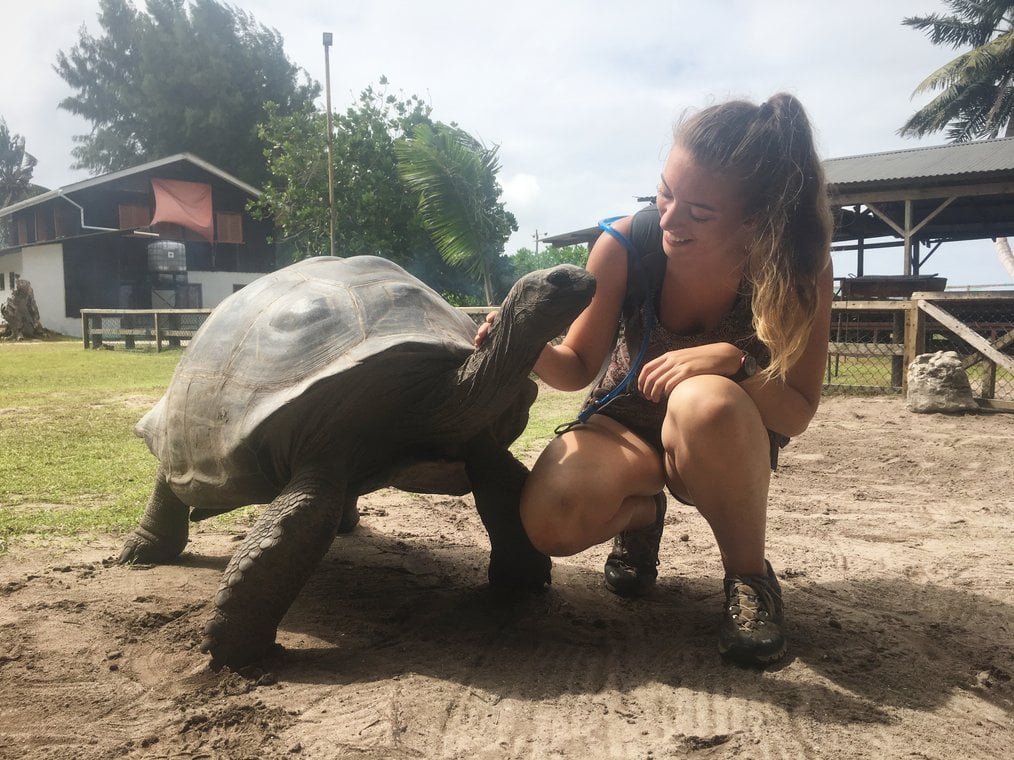How to Use Your Study Abroad Experience in a Job Interview

Getting your thoughts together after studying abroad can be a challenge. Mentally, you may still be back on the beaches of southern France, or sitting on an Argentinean balcony with a Spanish novel in your hand. Physically, you’re in the thick of a post-university job hunt. If you’ve landed an interview for what might just be your ideal job, you’re in luck: rumor has it that studying abroad can enhance your resume and make you even more appealing to employers.
If you want to make study abroad work for you, rein in those reminiscing thoughts and get ready to pitch your wonderful self right into a new job. By using the right perspective and describing your study abroad experience effectively, you can put yourself in a better position during the interview. Today might even be your lucky day, because we’ve pulled together a few tips to help you rock that interview all the way to Hired-ville.
1. Do Background Research
Even if you researched the company prior to submitting an application, do it again before the interview. Read the job advertisement so you know exactly what skills you’re looking for. Go over the company website to get a feel for the kind of image they’re trying to embody. Do they have a mission statement? An ‘About us’ page? Look for ways that your study abroad experience could align with their values and goals.
Studying abroad is an eye-opening experience full of exciting challenges and thrilling triumphs, and it also teaches you a unique skill set ideal for a global workplace. From communicating in a foreign country to understanding cultural customs, the benefits are numerous.
For example: if they work with international clients, mention that you are comfortable communicating in a cross-cultural environment.. If they want you to conduct research, use your study abroad thesis to prove that you have accomplished this before. If you feel like they want you to learn a new skill, tell them how you independently navigated the metro of Paris. Get creative, and make it relate!
2. Cite Specific Examples
As part of the preparation process, create a stockpile of examples from your time abroad. Envision a couple of common questions that are asked in interviews and do your best to relate them to your personal experiences abroad (don't force a connection, otherwise you'll just look like a goon). Which sounds better to you:
“Studying in Rome improved my communication skills.”
OR
“My Italian language skills were basic when I arrived, so I couldn’t rely on them to get me through day-to-day situations. I learned to listen carefully, use physical gestures and be concise in my communication, instead of giving up. This is still useful today, as it helps me to read between the lines and connect with people.”
The more specific and relevant, the better. If you can cite a time when your communication skills solved a problem, you’ve hit the nail on the head. Employers aren’t interested in generalizations; anyone can do that. Show them how your individual experience has shaped you as a potential employee.
3. Focus On Your Achievements
Don’t become the victim of your interviewer’s misconceptions about studying abroad. Maybe they think that study abroad is little more than a big party with blow-off classes mixed in. It’s up to you to make them see the value of your time overseas. What did you achieve? What classes did you take? How did it change you as a person?
Achievements can be academic accomplishments as well as personal. If you won a scholarship, organized an event, or volunteered, those things are worth mentioning. Think about how you prepared to go overseas. Did you dedicate yourself to working or studying to get the funds and grades to do it? You may have racked up a number of achievements without even realizing you’ve done it. Don’t sell yourself short!
4. Be Wary of Giving TMI

You know when people come back from a trip and every sentence out of their mouth starts with, When I was in Spain...? Don’t be that person. This is not the time for a verbal essay titled How I Spent My Semester Abroad.
Here is where preparation really pays off -- if you know your examples backwards and forwards, you can stick to the relevant portions of your experience. It’s okay to tell your interviewer that “it was amazing,” but steer clear of “totally awesome, best part of my life, hands-down, wish I was still there.” (We know it may be true, but try to stay on track.)
Hopefully if you took an entire year off, you did at least one of these things or something a little more meaningful and productive with your time besides hop from bus to hostel to plane to hotel all the time. Play up those aspects of your time abroad, so your interviewer knows you aren't just a full-time slacker with no motivation, aspirations or work ethic.
5. Find a Common Thread
Chances are, you’ve had a part-time job in addition to study abroad experience. Pick out the common threads in your employment/study history and link them to the job you’re interviewing for.
For example, maybe your first job at a bagel shop required you to write creative taglines about the daily specials on a blackboard. Then you got a degree in media and communications, which involved writing and presenting mock campaigns in your overseas class. Now you’re applying for a position as a marketing assistant. Tie those things together and highlight the way your written communication skills have developed and strengthened.
The examples aren’t always that obvious, and you might have to get a little creative. (If you’re getting a lot creative, make sure it isn’t too much of a stretch.) Employers want you to be happy in your position. If you can show that, in a way, you’ve been working towards this job through your past work and study experience, it makes it look like you want the job even more.
6. Lay Out Your Future Goals
Study abroad may have awoken the travel dragon in your soul. Maybe you’re just trying to earn some money so you can take off again. Maybe you’re looking for a stable career. To get hired, you need to make it clear that you are ready to make a commitment to this job. Sometimes you can get away with being totally honest about future travel plans, but this is more likely in a job with high turnover. Otherwise, you need to ease your interviewer’s concerns that you might not stick around.
Come up with a potential long-term career plan that includes this job. If there are future international job opportunities in the company that you’d be interested in, mention it. Employees who can grow with a company are very appealing. Show that the job is more to you than a paycheck, and you’re showing the company that they can benefit by investing resources in you.
Before you even get to this point, you might want to take the time to sit down and reflect upon your experience abroad. Think about who you were before you went abroad. Now, think about who you were after. Are these two people strangers? Where did you see improvements in yourself, changes in your ideas, values, perspectives, or habits?
7. Be YOU
Study abroad can enhance your qualifications, but the real selling point in your interview is you. Try to relax and be yourself. Remember, everything you’re talking about is true. Talk about it naturally rather than trying to parrot back a prepared speech about your qualities.
If your interviewer asks you some off-topic questions about your experience, don’t be afraid to expound. Making a personal connection can be just as important as showcasing your skills.
Now you’re all set to be an interview star! If you’re still pining away for your time overseas and not quite sure you’re ready to take the leap, don’t forget that you might be eligible for some working holiday visas. Then you could take these tips and your study abroad experience to become an international job-scoring jet-setter. The world is your oyster!
